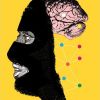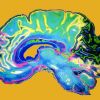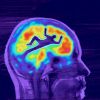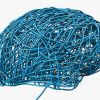-
 +50 +1
+50 +1Mass Murderers Fit Profile, as Do Many Others Who Don’t Kill
They have become one of the most notorious and alarming stripes of evil. People who, when you think back, seemed off. Didn’t dress right. Kept to themselves. Were nursing a bitterness that smoldered inside of them. And then they picked up guns and went out and killed as many as they could. In the aftermath, the same questions arise: Why didn’t everyone know? Why weren’t they stopped?
-
 +51 +1
+51 +1Can You Get Smarter?
You can increase the size of your muscles by pumping iron and improve your stamina with aerobic training. Can you get smarter by exercising — or altering — your brain? This is hardly an idle question considering that cognitive decline is a nearly universal feature of aging. Starting at age 55, our hippocampus, a brain region critical to memory, shrinks 1 to 2 percent every year, to say nothing of the fact that one in nine people age 65 and older has Alzheimer’s disease.
-
 +36 +1
+36 +1The Psychology of Terrorism
Here in the UK, one of the reasons why the appalling killings of two US journalists by Islamic terrorists have caused shock and soul-searching is because the apparent killer of both journalists (‘Jihadi John’, as he has been called) seems to be a young British man. In the videos he speaks with a clear London accent. The brutality of these killings seems completely out of place in the modern world; it seems to belong to a primitive pre-civilised era where...
-
 +18 +1
+18 +1How Humans Ended Up With Freakishly Huge Brains
Scientists have begun to identify the symphony of biological triggers that powered the extraordinary expansion of the human brain. There it was, sitting on the mantelpiece, staring at her with hollow eyes and a naked grin. She could not stop staring back. It looked distinctly like the fossilized skull of an extinct baboon. That was the sort of thing Josephine Salmons was likely to know. At the time—1924—she was one of the only female students of anatomy attending the University of...
-
 +30 +1
+30 +1Do Bilingual People Have a Cognitive Advantage?
For years, psychologists have been debating the “bilingual advantage” – the idea that speaking more than one language fluently brings with it cognitive benefits. Believers and skeptics in the theory have been trading blows for a while, but matters recently came to a head in the form of a series of papers in the journal Cortex. The bilingual advantage hypothesis states that bilinguals excel at ‘cognitive control’ also known as ‘executive function’ – meaning that...
-
 +26 +1
+26 +1Forgetting is key to learning
Do you often feel overwhelmed with the amount of information coming at you? Forgotten your shopping list as soon as you've heard the sports results? Don't worry, it's all completely normal – and necessary – according to new research which shows that such forgetting is a key part of learning. The study, by researchers from the University of Glasgow's Institute of Neuroscience and Psychology, is published today in Current Biology and has found that...
-
 +41 +1
+41 +1PTSD in the Slaughterhouse
Slaughterhouse workers face physical dangers and psychological problems based on their work, according to studies. There are approximately 1,100 federally inspected slaughterhouses in the United States, about 70 of which are in Texas. Most are in hinterlands such as Mineola, Muenster and Windthorst. The majority of these facilities slaughter and process animals, collectively employing thousands of workers who turn a constant...
-
 +5 +1
+5 +1When Do You Become an Adult?
It would probably be fair to call Henry “aimless.” After he graduated from Harvard, he moved back in with his parents, a boomerang kid straight out of a trend piece about the travails of young adults. Despite graduating into a recession, Henry managed to land a teaching job, but two weeks in, he decided it wasn’t for him and quit. It took him a while to find his calling—he worked in his father’s pencil factory, as a door-to-door magazine salesman...
-
 +47 +1
+47 +1The First 'Nigerian Prince' Scam
In 1966, Stanford University psychologists Jonathan Freeman and Scott Fraser observed an interesting phenomenon in their experiments: someone who has already agreed to a small request—like opening the door for you—would become more, not less, likely to agree to a larger request later on. In one study, they asked 150 housewives in Palo Alto, California, if they would sacrifice two hours of their time: a research team of five or six people would come...
-
 +35 +1
+35 +1Can a brain scan uncover your morals?
It’s hard to imagine Steven Northington killing two people. The 43-year-old says he likes to make people laugh, “like a comedian”. He’s a loyal son to his troubled mother and father. He sends his younger sister birthday cards from prison and draws elaborate smiley faces on them. His defense team laughs with affection when they hear his name because he is, they say, “a character”. Between 2003 and 2004, Northington was slinging for a drug ring that flooded his...
-
 +50 +1
+50 +1Narcissism Is Increasing. So You’re Not So Special.
MY teenage son recently informed me that there is an Internet quiz to test oneself for narcissism. His friend had just taken it. “How did it turn out?” I asked. “He says he did great!” my son responded. “He got the maximum score!” When I was a child, no one outside the mental health profession talked about narcissism; people were more concerned with inadequate self-esteem, which at the time was believed to lurk behind nearly every difficulty.
-
 +1 +1
+1 +1The blessing and curse of the people who never forget
For most of us, memory is a kind of scrapbook, a mess of blurred and faded snapshots of our lives. As much as we would like to cling on to our past, even the most poignant moments can be washed away with time. Ask Nima Veiseh what he was doing for any day in the past 15 years, however, and he will give you the minutiae of the weather, what he was wearing, or even what side of the train he was sitting on his journey to work.
-
 +7 +1
+7 +1How to Survive Solitary Confinement
With a sigh, Johnny Perez rises from his plastic chair, unfolds his lanky frame and extends his wingspan until the tips of his middle fingers graze the walls. “It was from here to here,” he says. “I know because I used to do this all the time.” Until recently, these measurements—10 feet by 6 feet—fit his entire life.
-
 +28 +1
+28 +1Why You Keep Signing Your Future Self Up for Stuff You Don’t Actually Want to Do
The first week of March is approaching, which does not bode well for me. Every month, it seems, I end up punting too many annoying tasks and requests to the first week of the following month, assuming that even though I don’t have time for these things now, surely I will later. March Me can handle it. Sign March Me up. And yet there is, of course, no rational reason to think that March Me will actually be any less busy than Present Me.
-
 +3 +1
+3 +1What It’s Like to Have Your Severe Depression Treated With a Hallucinogenic Drug
Everyone’s depression is different, but Ted, a 40-year-old resident of Portland, Oregon, describes his as a “continuous dark veil — a foul, dark, awful perspective that informs every moment of your whole life.” He’d tried to treat it with antidepressants, therapy, visits to psychiatrists, “the whole nine,” but although the antidepressants kept him functional, they by no means offered relief. He was getting desperate...
-
 +29 +1
+29 +1How Should You Organize Your Closet? Exactly Like a Computer Organizes Its Memory
You have a problem. Your closet is overflowing, spilling shoes, shirts, and underwear onto the floor. You think, “It’s time to get organized.” Now you have two problems. Specifically, you first need to decide what to keep, and second, how to arrange it. Fortunately, there is a small industry of people who think about these twin problems for a living, and they are more than happy to offer their advice.
-
 +2 +1
+2 +1Half Your Brain Stands Guard When Sleeping In A New Place
When you sleep in unfamiliar surroundings, only half your brain is getting a good night's rest. "The left side seems to be more awake than the right side," says Yuka Sasaki, an associate professor of cognitive, linguistic and psychological sciences at Brown University. The finding, reported Thursday in the journal Current Biology, helps explain why people tend to feel tired after sleeping in a new place.
-
 +21 +1
+21 +1Our brain uses statistics to calculate confidence, make decisions
The brain produces feelings of confidence that inform decisions the same way statistics pulls patterns out of noisy data. This feeling of confidence is central to decision making, and, despite ample evidence of human fallibility, the subjective feeling relies on objective calculations.
-
 +43 +1
+43 +1Dreaming brain rhythms lock in memories
Disrupting brain activity in sleeping mice, specifically during the rapid eye movement (REM) phase, can stop the animals remembering things they learned that day, a study suggests. It is the clearest evidence to date that REM sleep is critical for memory. By switching off certain brain cells, the researchers silenced a particular, rhythmic type of brain function - without waking the mice. If they did this during REM sleep, the mice failed subsequent memory tests.
-
 +33 +1
+33 +1United States of Paranoia: They See Gangs of Stalkers
Nobody believed him. His family told him to get help. But Timothy Trespas, an out-of-work recording engineer in his early 40s, was sure he was being stalked, and not by just one person, but dozens of them. He would see the operatives, he said, disguised as ordinary people, lurking around his Midtown Manhattan neighborhood. Sometimes they bumped into him and whispered nonsense into his ear, he said. “Now you see how it works,” they would say.
Submit a link
Start a discussion




















